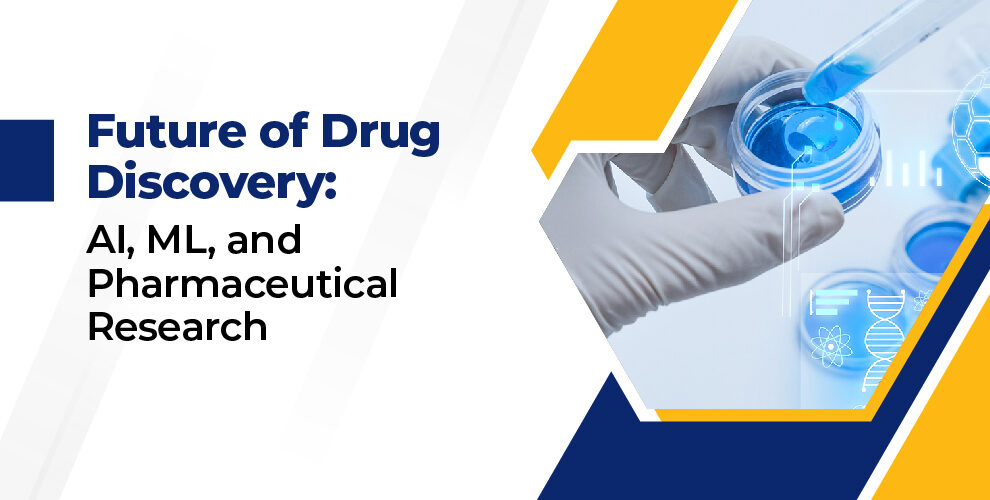Artificial intelligence has become a major force in the creation of new medical treatments in recent years. Traditional laboratory techniques have shown to be dependable, but the current COVID-19 pandemic has highlighted the need for more innovation. The process of finding new drugs is usually labor and time-intensive. Due to the complexities of the human immune system, it involves numerous steps, from target discovery to clinical trials.
The recent pandemic has created huge waves in everyone’s life across the world, leading to the urgent need for innovative drug discovery techniques to tackle any situation in the future. Modern advances in machine learning, artificial intelligence and innovative organ simulation are propelling a revolution in the healthcare industry. The drug discovery industry is moving towards new, quicker and more dependable techniques. As we navigate the intersection of AI and drug discovery and development, B.Tech Artificial Intelligence colleges in Coimbatore are at the forefront, fostering the next wave of creators, who will push the boundaries of healthcare innovation.
Current Approaches to Drug Discovery and Development
The ever-changing field of drug discovery and development is greatly advanced, utilizing sophisticated screening techniques to quickly identify promising candidates from the top artificial intelligence colleges in Tamil Nadu. In this ever-shifting environment, the integration of artificial intelligence has become a driving force, transforming old techniques. Two important techniquestechniques – traditional pharmacology and reverse pharmacology, play crucial roles in this process, each offering specific advantages in finding potential therapeutic interventions.
Traditional Pharmacology
Using a traditional approach, classical pharmacology aims to comprehend the biological effects of substances and how they interact with particular targets. To find possible therapeutic advantages, researchers carefully examine the physiological effects of substances. This method is well-researched and extensively utilized and also offers insightful information on how medications work.
Reverse Pharmacology
Target-based drug development or reverse pharmacology begins with the identification of particular molecular targets linked to a disease. This method entails testing substances to see if they can interact with or change the activity of specified biological targets. It quickly finds compounds with established mechanisms and speeds up the drug discovery process.
AI and Machine Learning Applications in the Pharma Industry
1. Validation and Identification of the Target:
Large-scale biological datasets are analyzed by AI and ML algorithms to find possible drug targets.
The possibility that a target is disease-relevant is evaluated by predictive modeling. It speeds up the process of identifying targets and allowing researchers to concentrate on the most potential applicants.
2. Medication Design and Enhancement:
AI is used in computational ways to design and optimize medication candidates based on interactions and molecular structures.
Compounds having a better possibility of succeeding in clinical trials can be chosen with the use of predictive modeling. It cuts down on the amount of time and money needed for the stages of design and optimization.
3. Online Drug Testing and Repurposing:
Large compound libraries are evaluated using AI-driven virtual screening to identify possible therapeutic candidates. It helps with medication repurposing by pointing out current medications that have therapeutic potential for novel uses and increases the effectiveness of finding lead compounds for additional research and development.
The Future of AI in Drug Discovery
Future developments in pharmaceutical research and development are expected to be revolutionary, opening up previously unattainable opportunities and efficiency, rather than merely incremental improvements.
1. Accelerated Target Identification and Validation:
As AI systems advance, they will be able to more accurately anticipate possible medication targets, which will cut down on the time and money needed to identify targets. Advanced AI models will improve target validation, guaranteeing that only the most promising targets move forward. Target selection and validation will be streamlined and expedited in the future, allowing drug discovery initiatives to get underway more quickly.
2. Personalized Medicine
AI’s application to genomic analysis will advance, enabling the customization of therapies according to each patient’s distinct genetic composition. It will play a role in advanced patient classification by guaranteeing that medicines are tailored to individual patient subgroups. Truly customized medicine is anticipated in the future, when artificial intelligence directs the creation of therapies that are exactly matched to the unique needs of each patient.
3. Improved Safety and Predictive Toxicology Assessment:
Artificial intelligence (AI) will propel the development of more complex models that forecast probable negative effects in predictive toxicology and safety evaluations. Enhanced safety evaluations will reduce the possibility of unanticipated negative reactions in the latter phases of medication development. The medication development process will be safer in the future, which will improve predictive toxicity and safety evaluations.
4. Transforming the Procedures for Clinical Trials:
AI-enabled clinical trial design and execution will be optimized, to predict trial outcomes and select the best patient populations. By improving retention rates and recruiting patients more quickly, predictive analytics will streamline the clinical trial procedure. Driven by artificial intelligence, clinical trials will be conducted with more efficiency, lower costs and faster drug development schedules in the future.
As AI and Machine Learning continue to advance, they will propel drug discovery into an era of unprecedented efficiency, precision and innovation. This transformative journey holds the potential to redefine healthcare, ushering in an age where treatments are not just developed but personalized, safer and more effective, ultimately benefiting patients and society at large. The future is bright and AI is at the forefront, driving the pharmaceutical industry towards new horizons. If you are looking to bring a positive change in the Pharma industry, a degree in B.Tech artificial intelligence and data science from the best B. Tech artificial intelligence and data science colleges in Tamil Nadu will give rewarding career opportunities.


